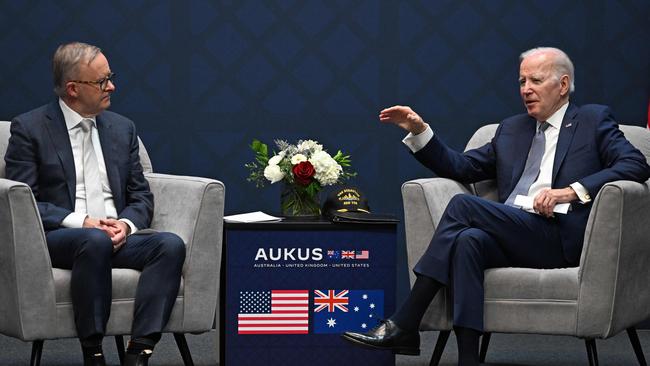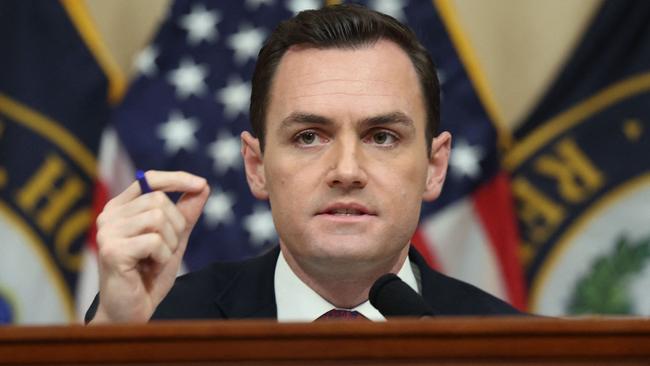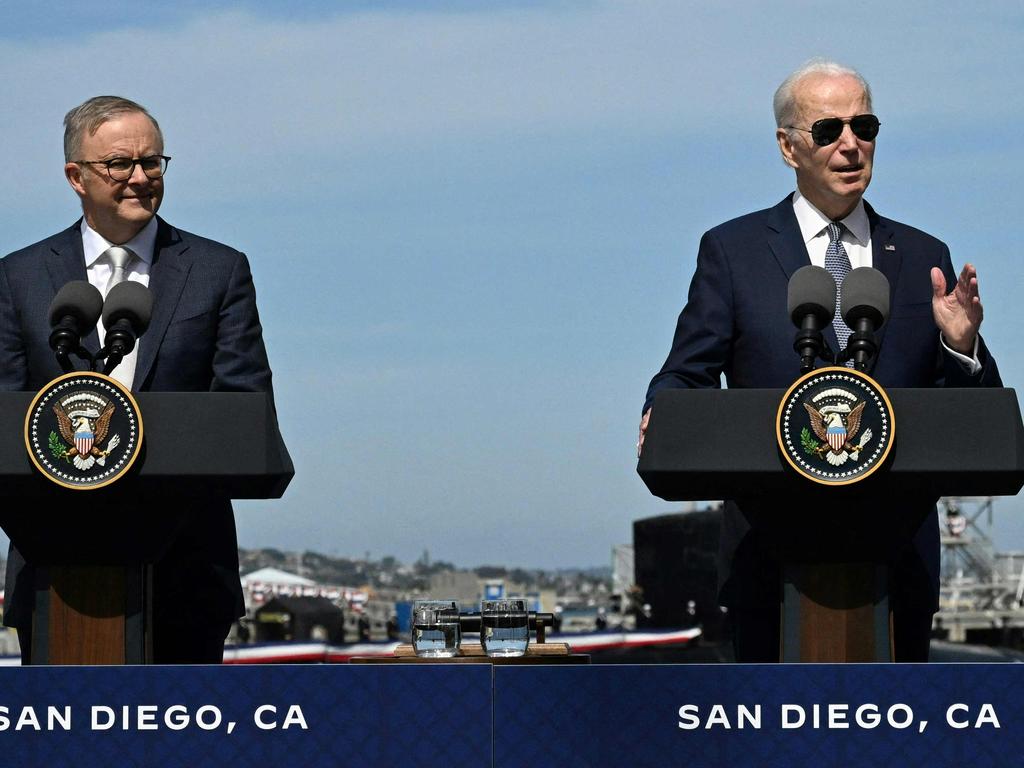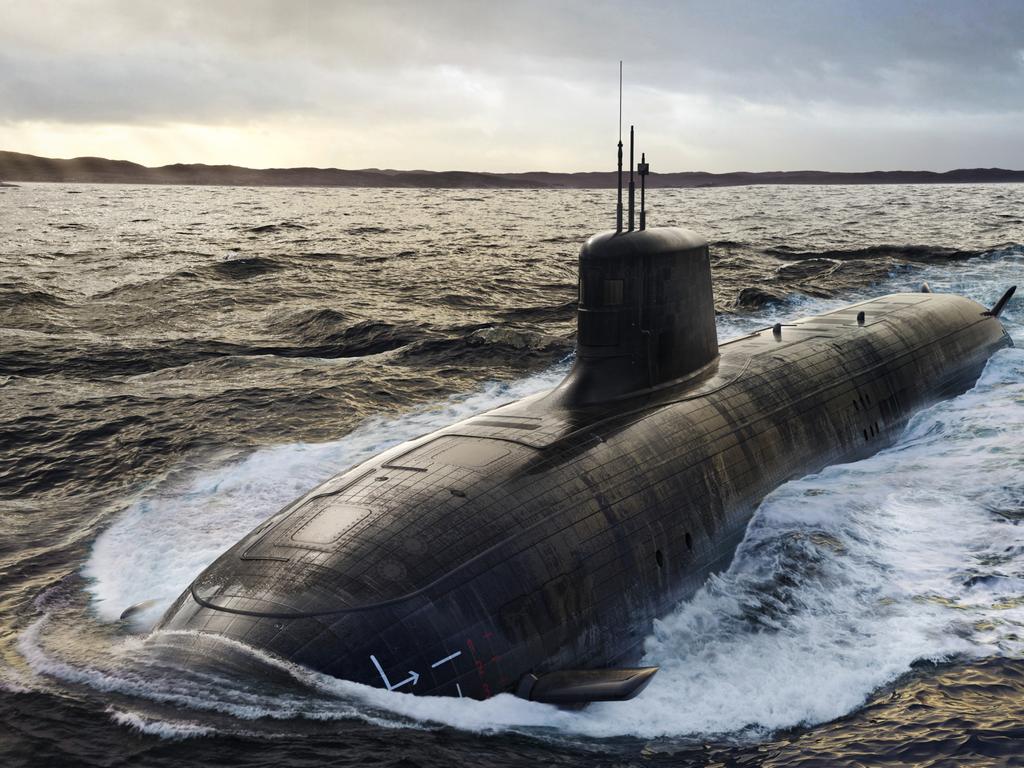Both sides of US politics back AUKUS path; former Trump official says submarine deal will last
Both sides of US politics hail the historic $368bn agreement, with a former Trump official saying it ‘will outlast Joe Biden’.

Democrat and Republican congressmen have hailed Australia’s planned acquisition of nuclear-powered Virginia class US submarines as a critical step to bolstering US and Australian defences against “totalitarian aggression” in the Indo-Pacific.
Three, strongly pro-Australia congressmen lauded the details of the AUKUS security pact following their announcement in San Diego on Monday (Tuesday AEDT) by the Australian and UK prime ministers and president Joe Biden, including the purchase of at least three used Virginia-class submarines in the 2030s.
Mike Gallagher, a Republican from Wisconsin, said the AUKUS details were critical to pushing back against “CCP aggression”, describing the announcement as “taking a critical step towards achieving these goals and demonstrates our commitment to defending the free world from totalitarian aggression”.
Democrat Congressman Joe Courtney said AUKUS was “an effective, intelligent effort to deter potential conflict in the Indo-Pacific by enhancing Australia’s Navy with nuclear-powered submarines”.
“This technology, which the US Navy has only shared once — in 1958, with the British Navy — will extend limitless reach and stealth to the Australian submarine fleet,” he added, as part of a joint statement with two other Congressman, all members of an informal, pro-Australian group known as the “AUKUS Caucus”.

Since the announcement of the AUKUS pact 18 months ago concerns about the willingness of US Congress to change longstanding rules to permit the necessary technology transfers to Australia to fulfil the AUKUS agreement have dogged the agreement.
Others pointed to a potential unwillingness of the US military to reduce their stock of submarines in order to boost Australia’s as part of an agreement among the three nations that was politically driven.
Randy Schriver, a former ¬assistant secretary of defence in the Trump administration, told The Australian “the real mischief could come from the US navy and allies in congress that blather on about industrial capability being diverted”.
“But the reality is because of the closeness of the alliance, and if there’s an embedded or composite crews, in many ways they would be an extension of US power projection capability in practice,” Mr Schriver, now chairman of Project 2049 Institute, a Washington-based think tank, said.
“Trump was pretty big on foreign military sales, and that aspect would probably appeal to him more than the alliance building aspect,” he added, when asked about concerns a future Trump-like administration could jettison the agreement.
Australia is expected to pay up to $368bn for the nuclear-powered submarines over the course of the next few decades, according to estimates released with Tuesday’s announcement, which US officials have publicly couched, in part, as a “substantial” contribution to the US industrial base.
“I just want to underscore Australia will be making a substantial contribution to the US submarine industrial base,” a senior administration official told journalists on Sunday (Monday AEDT), pointing to the Biden administration’s own US$4.6bn planned investment in submarine construction capacity.
Bryan Clark, a former adviser to the head of US naval operations, told The Australian it wasn’t clear what Australia’s contribution meant in practice.
“They have used vague language so the administration could say the sale proceeds for the used Virginia class submarines will be Australia’s contribution,” Mr Clark, a senior fellow at the Hudson Institute, said. “They have to throw a bone to people in Congress who might oppose elements of the deal”.
Mr Clark also said the 2027 timeline for the for the first rotation of US submarines seemed unnecessarily slow. “At Guam it took 1 or 2 years to get the first one out there, there’s no reason why we couldn’t establish rotational force next year.”








To join the conversation, please log in. Don't have an account? Register
Join the conversation, you are commenting as Logout